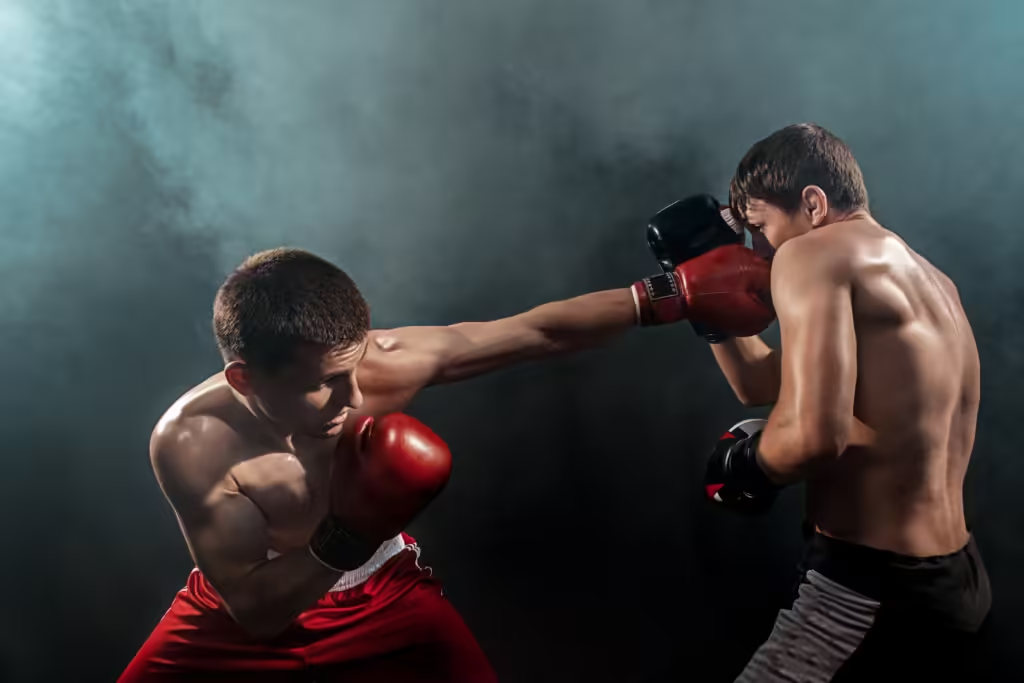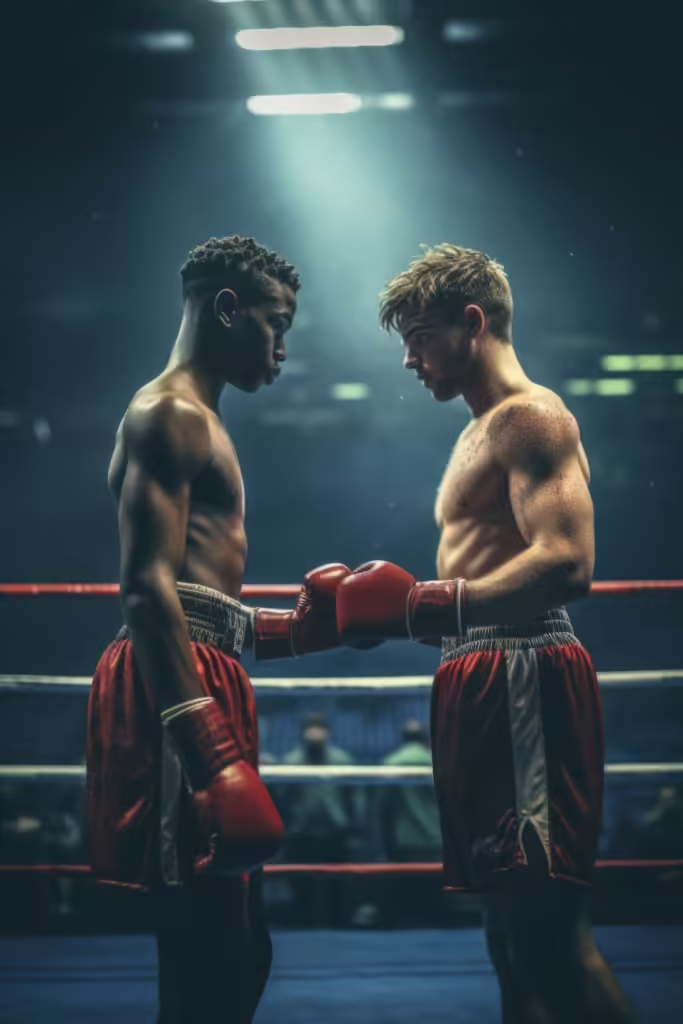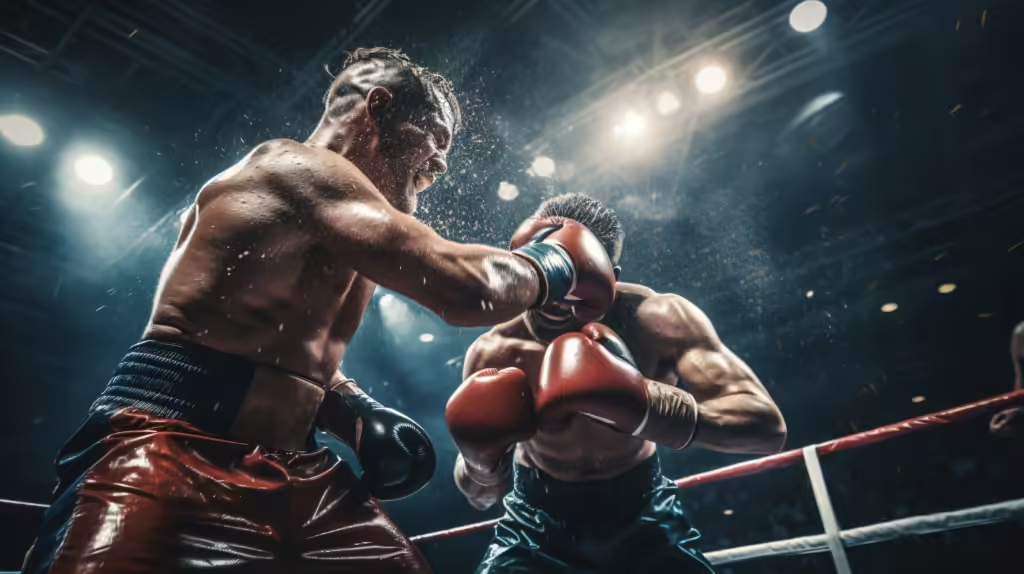|
Getting your Trinity Audio player ready...
|
What is Boxing?
Boxing is a combat sport where two participants, wearing protective gloves, compete against each other using punches within a defined set of rules. It’s not just about brute force; boxing is a blend of technique, strategy, and athleticism, often referred to as the “sweet science” for its intricate combination of offense and defense.
The History of Boxing
The origins of boxing can be traced back to ancient civilizations like Greece and Rome, where it was a popular sport. Modern boxing, however, began to take shape in the 18th century in England with the implementation of standardized rules. The introduction of the Marquess of Queensberry Rules in 1867 laid the foundation for the sport we know today.
Table of Contents

The Basics of Boxing
Before stepping into the ring, mastering the basics is essential. The foundation of boxing revolves around stance, guard, and basic punches.
Stance and Guard
A proper stance provides balance, mobility, and the ability to throw punches effectively. Fighters typically adopt an orthodox (left hand and foot forward) or southpaw (right hand and foot forward) stance. The guard is equally important, as it protects the face and body from incoming punches.
Basic Punches: Jab, Cross, Hook, and Uppercut
There are four fundamental punches in boxing:
- Jab: A quick, straight punch from the lead hand used for offense and defense.
- Cross: A powerful straight punch from the rear hand, often used as a knockout punch.
- Hook: A punch that comes around from the side, targeting the opponent’s head or body.
- Uppercut: An upward punch targeting the chin, especially useful in close-range combat.
Types of Boxing Styles
Boxers have different styles depending on their strengths and preferences.
Out-Boxer
Out-boxers rely on speed, footwork, and distance to control the fight. They prefer to stay on the outside and pick their shots, using quick jabs and combinations. Examples include Muhammad Ali and Floyd Mayweather Jr.
Brawler
Brawlers, or sluggers, focus on power rather than technique. They aim to overwhelm their opponents with aggressive offense and heavy punches. Famous brawlers include Mike Tyson and Joe Frazier.
Counterpuncher
Counterpunchers wait for their opponents to attack and then capitalize on openings. This style requires patience and excellent defensive skills. Juan Manuel Marquez and Canelo Alvarez are prime examples of successful counterpunchers.
Training for Boxing
Training is a crucial part of boxing, involving a mix of conditioning, strength work, and skill development.
Cardio and Conditioning
Boxers need exceptional cardiovascular fitness to maintain energy levels throughout multiple rounds. Running, jump rope, and HIIT (high-intensity interval training) are common components of a boxer’s training routine.
Strength Training and Skill Work
Boxers also focus on building strength through weight training, bodyweight exercises, and resistance drills. Skill work includes shadowboxing, mitt work, and sparring, all designed to sharpen technique and timing.

Essential Gear for Boxing
Proper gear is vital for safety and performance in boxing.
Gloves and Hand Wraps
Boxing gloves protect the hands and wrists while reducing the impact on the opponent. Hand wraps provide additional support, reducing the risk of injury during training or competition.
Mouthguard and Headgear
A mouthguard protects the teeth and jaw, while headgear cushions blows to the head, especially during sparring sessions. Wearing these protective items is crucial for minimizing injury risk.
Famous Boxers and Their Impact
Some boxers have transcended the sport, becoming legends and cultural icons.
Muhammad Ali: The Legend
Muhammad Ali, known as “The Greatest,” revolutionized boxing with his speed, charisma, and outspokenness. His bouts, especially the “Rumble in the Jungle” and “Thrilla in Manila,” are etched in sports history.
Modern Champions: Canelo Alvarez, Tyson Fury
Today, boxers like Canelo Alvarez and Tyson Fury continue to captivate audiences. Canelo is known for his versatility and technique, while Fury’s comeback story and unorthodox style have made him a fan favorite.
Boxing as a Sport and Workout
Boxing isn’t just for athletes; it’s also a fantastic way to stay fit.
Boxing for Fitness
Boxing workouts combine cardio, strength training, and agility exercises, making it a full-body workout that improves endurance, strength, and coordination.
Competitive Boxing
For those interested in competition, amateur boxing provides an entry point, with local and national events offering opportunities to progress. Competing requires dedication, discipline, and a commitment to training.
How to Get Started in Boxing
Interested in learning boxing? Here’s how to begin.
Finding a Gym or Coach
Start by finding a reputable gym or coach. A good coach will teach you proper techniques, build your confidence, and guide you through the basics.
Beginner Workouts and Drills
Begin with simple drills like shadowboxing, footwork exercises, and bag work. These drills help develop coordination and muscle memory, laying the groundwork for advanced techniques.
Safety in Boxing
Safety should always be a priority, especially for beginners.
Protective Gear
Always wear gloves, a mouthguard, and headgear when sparring. Investing in quality gear reduces the risk of injuries and ensures you can train effectively.
Proper Technique to Avoid Injuries
Learning proper technique is key. Throwing punches or moving incorrectly can lead to injuries like sprains, fractures, or even concussions.

Read About:Tyson v Paul is dangerous and disrespectful – Hearn
Major Boxing Organizations and Championships
Boxing is governed by several major organizations, each with its own championships.
WBC, WBA, IBF, and WBO
The WBC, WBA, IBF, and WBO are the primary boxing organizations, each with its own set of titles. Fighters often compete to unify these titles and become undisputed champions.
The Road to Becoming a Champion
Becoming a champion requires progressing through amateur ranks, gaining professional experience, and earning the right to compete for titles through ranking systems and mandatory fights.
Conclusion
Boxing is a dynamic and engaging sport that offers physical, mental, and emotional benefits. Whether you’re training for fitness or aiming to become a champion, understanding the fundamentals, techniques, and safety measures can help you navigate this exciting journey.
FAQs
- What is the best age to start boxing?
There’s no perfect age, but many boxers start young, around 8-12 years old. However, adults can begin anytime for fitness or competition. - Can boxing help with weight loss?
Yes, boxing is an effective full-body workout that burns calories and improves cardiovascular health, aiding in weight loss. - Is boxing safe for beginners?
With proper training, gear, and technique, boxing can be safe. It’s important to follow instructions and wear protective equipment. - How long does it take to become good at boxing?
It varies, but consistent training for 6-12 months can help beginners develop fundamental skills. - What’s the difference between amateur and professional boxing?
Amateur boxing often involves shorter, faster-paced bouts with more protective gear, while professional boxing features longer rounds and higher stakes.

